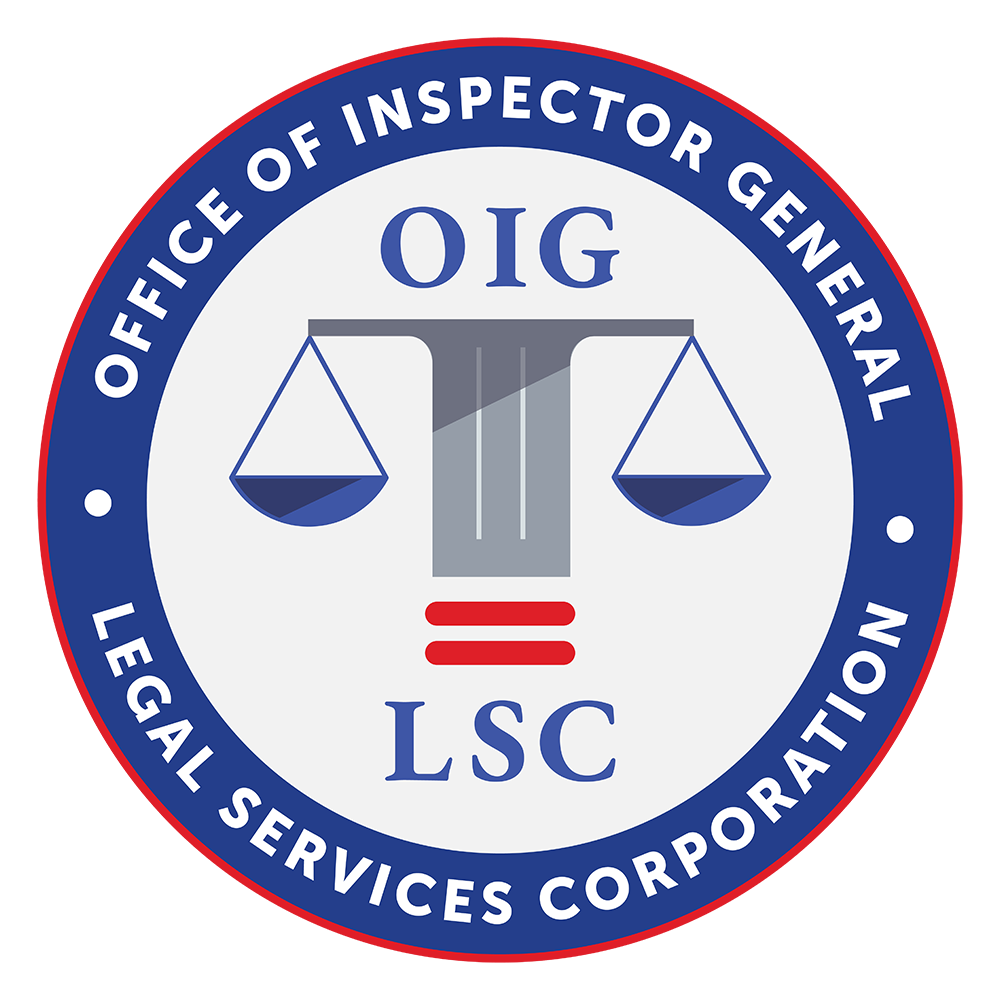Close-out Audit
A close-out audit consists of the financial statements and compliance reports, prepared according to LSC OIG guidance, for the final period in which the auditee received direct LSC funding. It is a close-out audit if the auditee has not received direct LSC funds beyond the FY-ending date of the audit submission.
Close-out also applies if it is the final audit of a recipient as a separate legal entity and the recipient is merging into another organization.
Critical Finding
A reportable condition that meets the definition of a material weakness, or any material instance of noncompliance with any LSC law or regulation.
Deficiencies
Noncritical findings; findings or recommendations for improvement that are not material weaknesses or are not material instances of noncompliance.
Findings Code
A general classification of the type of critical finding reported, as listed in the Legend of Non-Compliance & Reportable Conditions Codes found at on the LSC OIG website.
LSC Net Assets (Fund Balance)
The net assets of an LSC recipient organization derived solely from the receipt and use of LSC funds, exclusive of property. Under the Accounting Guide for LSC Recipients (August 1997), LSC Net Assets is called the LSC Fund Balance.
LSC Support
For purposes of calculating the LSC net assets/deficit, LSC support is defined as all LSC grants except one-time grants plus income derived from those grant funds. (e.g., interest, attorney's fees, publication income - see 45 CFR 1628.2)
Material Weakness
From Statements on Auditing Standards 60 & Communication of Internal Control Structure Related Matters Noted in an Audit: "A material weakness in the internal control structure is a reportable condition in which the design or operation of one or more of the internal control structure elements does not reduce to a relatively low level the risk that errors or irregularities in amounts that would be material in relation to the financial statements being audited may occur and not be detected within a timely period by employees in the normal course of performing their assigned functions."
Management Letter
A report to the Board of Directors or management of the LSC recipient organization, issued in conjunction with the audit report on the financial statements, which communicates matters noted during the audit. The matters discussed in the management letter may not qualify as reportable conditions; rather, they may include minor deficiencies or recommendations for improvement of the auditee's operations.
Questioned Costs
Under 45 CFR 1630.2, a charge or a proposed charge to a recipient's LSC funds which could be determined to be ineligible. In determining whether a charge may be ineligible, the auditor should also consider the following definition: an incurred cost that is found by an IPA to: (1) be a possible violation of a provision of a law, regulation, contract, or other agreement or document governing the use of LSC funds; (2) lack adequate supporting documentation; (3) be unnecessary or unreasonable given the intent of the expenditure.
Related Party
LSC OIG follows the FASB Statement No. 17 definition of "related party." LSC OIG considers "related party" in a broad context. Examples of relationships which we would expect the IPA to note in the audit report include: financial relationships between governing board members and the program; and resource sharing and/or financial relationships with another legal services entity other than a contractual subrecipient.
Reportable Conditions
From Statements on Auditing Standards 60 & Communication of Internal Control Structure Related Matters Noted in an Audit: reportable conditions " ...are matters coming to the auditor's attention that, in his judgment, should be communicated to the audit committee because they represent significant deficiencies in the design or operation of the internal control structure, which could adversely affect the organization's ability to record, process, summarize, and report financial data consistent with the assertions of management in the financial statements."
Unsupported Costs
Costs reported as questioned because of a lack of supporting documentation.
